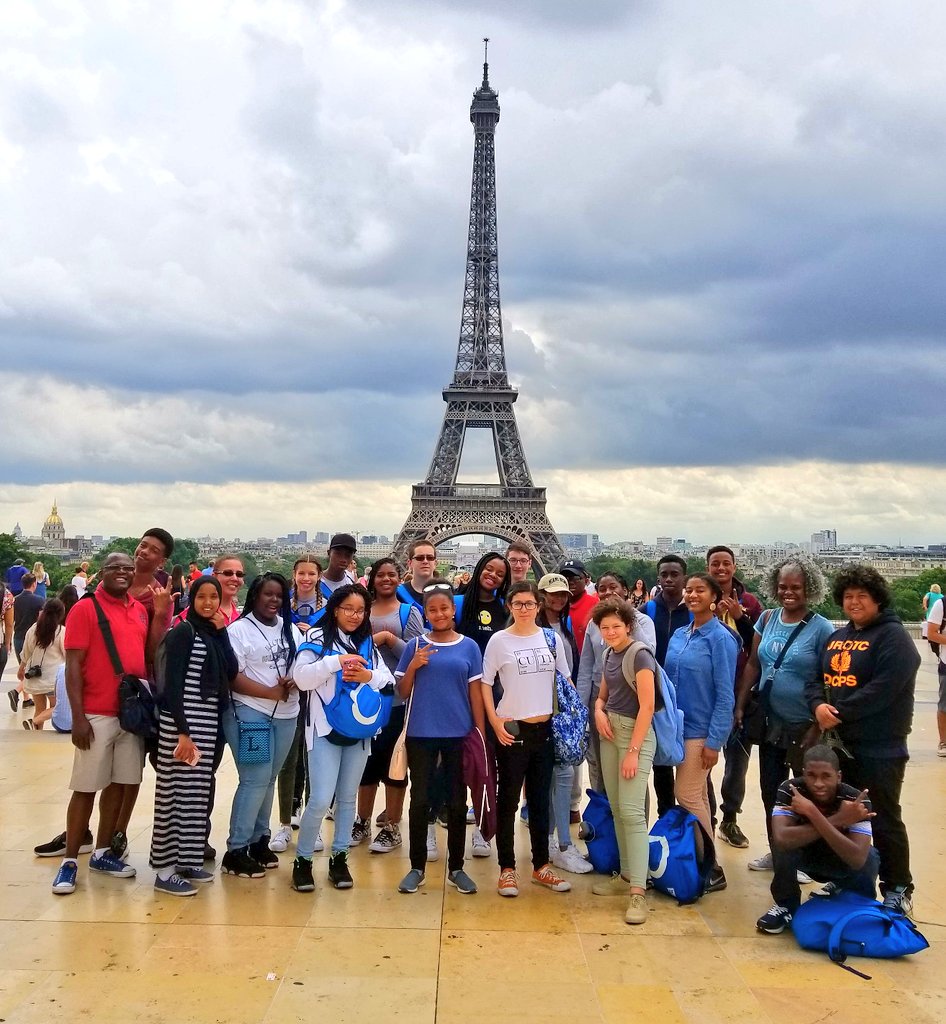By Dr. Laura Engel and Kate Ireland
Hundreds of Washington, D.C., public school students and educators went abroad… what happened next?
In January 2016, D.C. Public Schools (DCPS) announced something big. Something new. Something exciting. For the first time ever, DCPS would send hundreds of middle and high school students to travel the world—for free—through a program called DCPS Study Abroad. By July 2018, DCPS will have sent over 1,400 students and educators on fully funded trips to 18 countries in 3 years.

Global travel isn’t commonly part of the national conversation around education reforms. Among the challenges faced by the District, some questioned the cost of such an investment, which averages $3,800 per traveler (all costs are covered for students, including passport, suitcases, food). But DCPS recognized the importance of preparing all students with the skills required for an increasingly globalized world.
Historically, schools with fewer resources and higher rates of student poverty have not offered such trips; at the K-12 level, these are typically funded by families. According to the Institute of International Education’s Open Doors report, an annual compilation of leading data on post-secondary study abroad, 71 percent of U.S. students studying abroad in 2017 were white. DCPS Study Abroad has shifted that narrative: 91 percent of 2017 DCPS Study Abroad participants were students of color, 86 percent were economically disadvantaged. DCPS Study Abroad participants come from 47 DCPS schools, and represent an array of backgrounds, identities, and abilities.
DCPS has changed the conversation about who can and should participate in global learning. But what about the student experiences and associated outcomes? Has this bold investment in global education paid off? The latest study, released by the George Washington University (GW), tells the next part of that story.
GW’s mixed methods study of the DCPS Study Abroad program used a series of surveys taken before and after travel, demographics data, and interviews with students and teachers. Among the key findings, researchers found significant gains in students’ social-emotional learning, including enhanced self-awareness, increased confidence in making friends whose backgrounds differ from their own, and greater motivation to do well in school.
Participants demonstrated open-mindedness toward cultural differences, curiosity and respect for other cultures, and reported that while communication in a foreign language was a notable challenge, it was also enjoyable and rewarding. Students saw speaking a language other than English as an important asset, and frequently expressed new goals to learn a world language. The percentage of respondents who reported seeing themselves as world citizens increased from 78 percent to 87 percent. Simultaneously, students indicated a strong commitment to serving their local D.C. communities.
At a time when cross-cultural dialogue has become fraught with tensions globally, returning DCPS Study Abroad travelers are teaching us valuable lessons. They are showing us that opening doors to the world can create incredible outcomes for learners, including building the grit, empathy, and independence that have risen to the forefront of recent education conversations. They are showing us that the future is interconnected, the future speaks many languages, the future is filled with issues that require global solutions—and that DCPS students are ready for this future.
Six months after returning from travel, students were asked, “What is the most powerful thing you have learned from your experience?” The student responses, a few of which are shared here, show that these are the powerful voices of a new generation, which fills us both with hope and excitement for the future.
- “I learned that there is a big world. Don’t settle your mind for something less, because there are amazing things to come.”
- “The most powerful thing I learned on my trip was how much all the students on the trip had in common despite coming from very different parts of the city and backgrounds. We got along instantly. It changed my perception of some of the other D.C. high schools and neighborhoods.”
- “I learned that interacting with people of different cultures is actually fun and that it is easy to make friends. I was not sociable until I went to this trip where I learned to be sociable and learn new things. I learned Spanish, which is helping me in school today.”
- “The thing I learned most about being in study abroad is that I need to more open-minded about doing things out of my comfort zone. I would love to have the opportunity to travel the world again, go places I have never seen before, but at the same time learn.”
Dr. Laura Engel is an Associate Professor of International Education and International Affairs at the George Washington University (GW), where she is director of the International Education Program, co-director of the certificate program, Incorporating International Perspectives into Education, and co-chair of the GW UNESCO Chair in International Education for Development. Follow Laura @EngelLC.
Kate Ireland is the founding director of the District of Columbia Public Schools (DCPS) Global Education team, which works to ensure that global opportunities are the expectation, not the exception, for all students (dcpsglobaled.org). Since 2014, the groundbreaking work of DCPS Global Education has been recognized and awarded by organizations that include the Institute of International Education (IIE), GoAbroad, NAFSA, and Diversity Abroad. Follow the team’s work @DCGlobalEd.